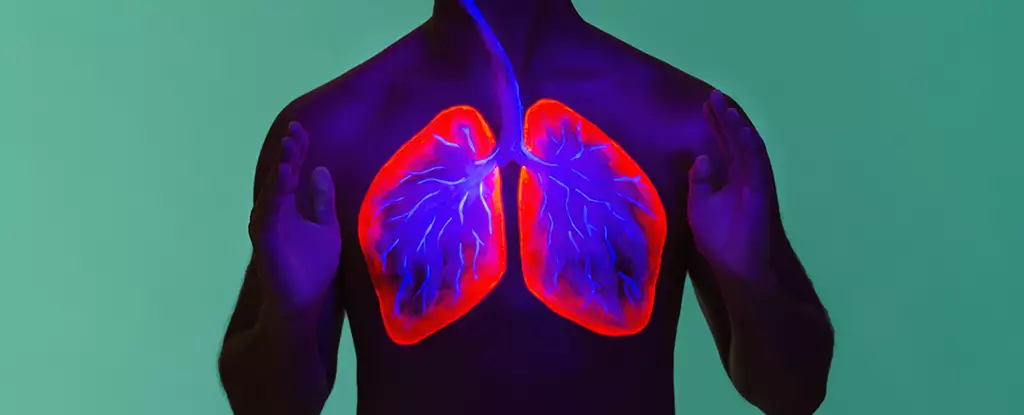In the ongoing fight against lung cancer, much of the conversation has historically centered around smoking and environmental pollutants. However, emerging research from the University of Florida and the University of Kentucky is challenging this narrative, suggesting that our dietary habits could play a significant role in the development of lung cancer. This groundbreaking study explores the role of glycogen, a molecule that stores glucose, and indicates that dietary choices could be as vital to our lung health as avoiding cigarettes.
The researchers uncovered that glycogen levels were notably elevated in tissue samples from patients suffering from lung adenocarcinoma, the predominant form of lung cancer. Through innovative techniques like spatial metabolomics, they were able to map out glycogen’s presence and infer its impact on tumor behavior. The implications of this finding are striking: glycogen appears to act as a growth stimulant for cancer tumors, which thrive on this energy source particularly in a high-fat and high-carbohydrate context.
The Science Behind Glycogen and Cancer
The potential connection between glycogen and lung cancer reveals yet another layer of complexity in cancer biology. Glycogen serves as an energy reservoir for our bodies, harvested particularly during periods of physical activity. However, this study suggests that while glycogen is essential for normal cellular functions, it could also inadvertently fuel the rapid proliferation of cancer cells, leading to dire consequences.
In laboratory settings, mice that consumed a diet rich in fats and carbohydrates exhibited a starkly higher incidence of lung cancer compared to those on diets with lower levels of these macronutrients. This raises critical questions about the food we eat and its potential long-term effects on our health, particularly in relation to chronic diseases like cancer. Is it possible that our everyday dietary choices are fueling an epidemic that’s been largely overlooked?
Challenging Traditional Narratives
Historically, lung cancer has been relegated to associations with smoking and air quality, yet this new perspective shines a light on the complex interplay between diet and disease. As the researchers noted, while we have made strides in reducing smoking rates through public health campaigns, we have yet to recognize the importance of diet in disease prevention, especially for lung cancer.
Ramon Sun, a molecular biologist involved in the study, underscores the need for a shift in public perception and policy to include dietary interventions as part of lung cancer prevention strategies. It is time for our public health messages to evolve and embrace dietary recommendations as significantly as they have embraced anti-smoking campaigns.
The Dietary Shift: A Need for Awareness
This research adds complexity to our understanding of cancer etiologies and provides compelling evidence in favor of a reevaluation of dietary practices. As we grapple with the implications, it is worth considering how the Western diet, characterized by an abundance of processed foods, red meats, and sugary carbohydrates, might be setting the stage for various forms of cancer, including lung cancer.
While it’s essential to await further studies that could establish a direct correlation between dietary habits and lung cancer risk, the findings so far should serve as a wake-up call. The message is clear: we should not underestimate the potential consequences of our diet on our long-term health. As we integrate this new information, it prompts a broader conversation about how we can empower individuals to make more informed dietary choices to preemptively combat diseases.
The Call for Further Research
While the findings of this study are both intriguing and alarming, they also herald the necessity for further investigation. Not all forms of lung cancer were analyzed, and the researchers noted that elevated glycogen levels were exclusively linked to lung adenocarcinoma. Future studies should delve deeper into understanding the specific mechanisms at play, along with exploring additional cancer types and their potential dietary correlations.
As we look ahead, it is vital for scientists, nutritionists, and healthcare providers to collaborate and push the boundaries of our collective understanding. The translation of this research into actionable dietary guidelines could ultimately reshape public health frameworks and personal prevention strategies, redefining our approach to lung cancer and encouraging a healthier, more mindful population in the process.

